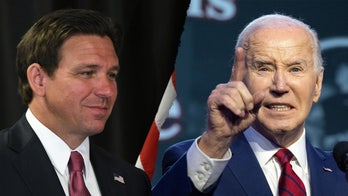President-elect Barack Obama's top adviser said Sunday the new administration will cut taxes for the middle class even though the economy is slumping.
"We feel it's important that middle class people get some relief now," Obama adviser David Axelrod told NBC's "Meet the Press."
Middle class tax cuts will be part of the new administration's stimulus plan, Axelrod said. But cuts enacted in 2001 and 2003 will expire.
"It's something we plainly can't afford moving forward," he said. "Whether it expires or we repeal it a little bit early we'll determine later but it's going to go. It has to go."
Axelrod argued that letting tax cuts expire is not the equivalent of a tax increase.
"It'll just restore some balance," said Axelrod, saying the two moves will equal a "net tax cut for the American people."
The incoming administration is considering tax cuts of $1,000 for couples and $500 for individuals that will be delivered by reducing the tax withheld from paychecks. That plan, which would cost about $140 billion over 2009-2010, would put more money in paychecks.
The lump-sum rebates issued earlier this year were used by many people used those rebates to pay down debt, rather than spending them as the administration had hoped.
"People need money in their pockets to spend," Axelrod said. "That'll get our economy going again."
Axelrod placed the cost of a planned Obama stimulus package at "$675 billion to $775 billion" but said "those numbers are not fixed."
Separately, incoming press secretary Rob Gibbs said he's preparing to be part of an administration full of strong personalities, but at the end of the day, Obama will make the final calls.
"I think a far greater risk is to assemble a group of people that whenever the president opens their mouth, they all nod their heads in agreement," Gibbs said. "There's one person in that room that's going to make the ultimate and final decision. That's going to be President-elect Barack Obama."
Gibbs told ABC's "This Week" that he realizes the challenge of communicating the administration's strategy and offered a lesson from the Bush administration.
"My guess is, if you can talk to the current administration, particularly as it relates to the economic recovery or the money that's been used to help, you know, banks and to relieve the stresses on our financial system, is -- if they could do it all over again, I bet one of the things that they might tell you is, they need -- probably needed a stronger communications strategy for letting people know and understand how this was going to work and what this money was going to be used for," he said.




